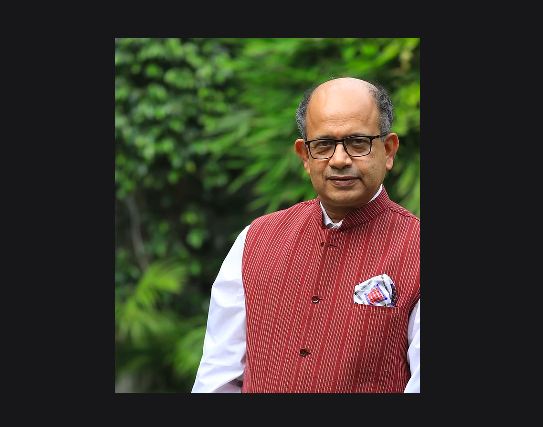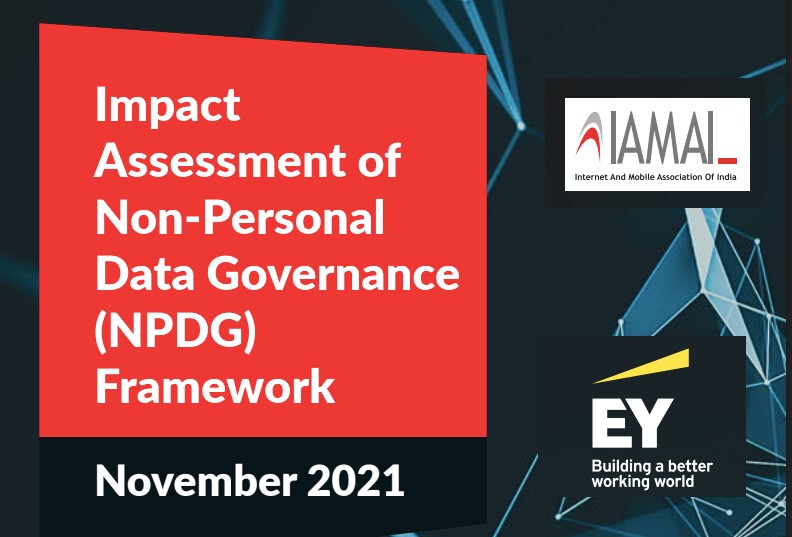Dr Patnaik Releases IAMAI-EY Report on Impact Assessment of Non-Personal Data Governance (NPDG) Framework
New Delhi, NFAPost: Rajya Sabha and Member of the Joint Parliamentary Committee on Personal Data Protection (PDP) Dr Amar Patnaik said the regime of using non-personal data for various purposes is definitely going to be dependent on the different ways different sectors will use NPD.
Speaking at IAMAI’s virtual conference on the Non-Personal Data Governance (NPDG) framework, Amar Patnaik said different sectors will also require different development efforts for developing the market.
“Agriculture, healthcare, education will all utilize it differently, the one size fits all myth should be dispelled. Also, we should give importance to light-touch regulation and market development in extracting the full value of data,” said Amar Patnaik.
IAMAI-EY report on Impact Assessment of Non-Personal Data Governance (NPDG) Framework states that over 76% of the participants in the survey believe that external access to their company’s data even in anonymised formats will hamper their growth prospects and about 81% believe that there should be a more nuanced definition of sovereign purpose in the NPDG framework.
India’s data-sharing practices are currently based on the National Data Sharing and Accessibility Policy (NDSAP) under which the Government of India had introduced the Open Government Data (OGD) initiative to improve public data usage and accessibility to its citizens. However, the research found that not all ministries, departments, and state governments update or share their data regularly.

It also noted that the presumed benefits to startups from the mandated data sharing are unlikely to create level-playing field. Rather, the data-sharing mechanism may only aggravate their challenges as this will add to a long list of compliances and liabilities faced by enterprises despite the steps taken by the Government of India to enhance ease of doing business. Hence, in the absence of any market failure the NPDG framework should have a light touch regulatory approach, if any.
The report states that effective implementation of the NPDG framework hinges on clarifying key terms and concepts such as ‘harm’, ‘public good’, ‘sovereign purpose’, and ‘public interest’ while also ensuring alignment and consistency across the PDP Bill and the NPDG framework especially considering that critical personal data imposes externalities on non-personal data.
Also, 40% of survey respondents expressed discomfort in sharing data with the data trustee, citing that entrusting a non-government body with metadata could lead to data spillovers among competitors.
The industry stakeholders believe it is important to ascertain the societal and economic benefits that may arise from the mandatory sharing of non-personal data. A pilot in select sectors will help in ascertaining the challenges in implementation as well as better assessment of value creation, accretion, and distribution.
About IAMAI
The Internet and Mobile Association of India [IAMAI] is a young and vibrant association with ambitions of representing the entire gamut of digital businesses in India. It was established in 2004 by the leading online publishers, and in the last 16 years has come to effectively address the challenges facing the digital and online industry including mobile content and services, online publishing, mobile advertising, online advertising, digital entertainment, ecommerce and mobile & digital payments among others.
Sixteen years after its establishment, the association is still the only professional industry body representing the online industry in India. The association is registered under the Societies Act and is a recognized charity in Maharashtra. With a membership of nearly 300 Indian and overseas companies, and with offices in Delhi and Mumbai the association is well placed to work towards charting a growth path for the digital industry in India.





